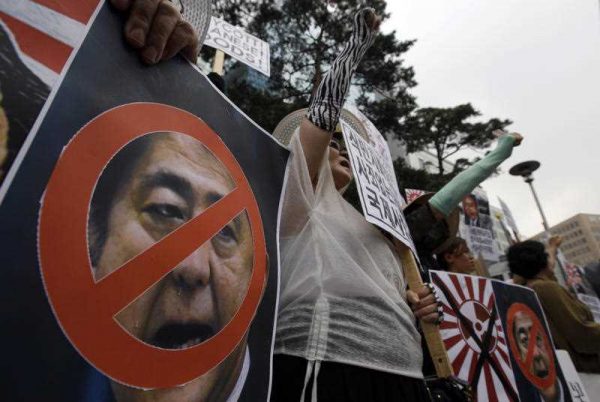Those who pushed for the use of the term ‘aggression’ were brave, and it is surprising they (sort of) prevailed. The idea returns in more a muted form in the conclusion where we learned that ‘Japan swam against the international tides … [by using] military force for its expansion in Asia […] and created a major cause of World War II’. They added that even if it was not Japan’s intention, their expansionist ideology ended up liberating Asia from colonial rule.
The report’s narrative on ROK–Japan relations was the most interesting. There was no mention of the nature of Japanese colonialism. All there was was a vague claim that Japanese policy on the peninsula ‘eased’ in the 1920s, but later became ‘relentless’. And all there was in the way of an analytical framework was the unsubstantiated assertion that South Korea has alternated between rational and emotional leadership.
Interestingly, according to the report, all the rational ROK leaders, except Kim Dae-jung, were authoritarian and willing to bury the hatchet, while the emotional ones were all democrats. It says in South Korea ‘democratization and the disappearance of the authoritarian political system removed obstacles to rethinking its relations with Japan emotionally instead of with reason’.
The only suggestion that Japan may have ignited some of this emotion by revising its textbooks and by denying its crimes against Korean women comes in the oblique acknowledgement that ‘there was also an aspect of the developments in Japan [that contributed to] … arousing public sentiments in the Republic of Korea’.
The report continues arguing that, unlike other recent South Korean leaders who initially sought to improve relations with Japan but then ‘moved the goalposts’ under public pressure, President Park Geun-hye has been emotional from the get-go. Her administration, the report reads, ‘finds no significance in dealing with Japan rationally’.
In short, then, the use of the term ‘aggression’ notwithstanding, Abe has received a report that could justify him ignoring Korean sensibilities.
Richard Samuels is Ford International Professor of Political Science and director of the Center for International Studies at MIT.


I wonder if the report’s blindness to the historical issues with the ROK is a reflection of the underlying and long standing lack of respect which Japan seems to feel towards Koreans. The animosity blinds many Japanese to the legitimate complaints Koreans have for having been subjected to colonial rule for 35 years.
How unfortunate and self defeating that two countries whose proximity and cultural similarities cannot lead to closer and more cooperative relations. Canada and the USA have such an alliance, even though there are some Canadians who resent the USA for its dominance. But then Canada was never a colony of the USA.